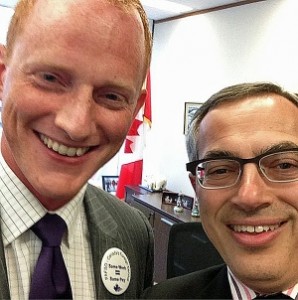
Photo by ThisisEngineering RAEng on Unsplash
According to a new study from global recruiting firm Hays PLC, which surveyed the skills gap in 30 developed countries around the world, Canada ranks ninth for the severity of its skills shortage, and its score deteriorated in the past year.
Countries such as Japan, the United States, Germany and Sweden top the list in skilled worker shortage.
The report highlights two key findings
First, the state and the efficiency of a labour market in any particular country is not necessarily driven by the state of the economy in that point in time. Rather, the data suggests through the index that the efficiency of the labour market is driven by more structural factors. That said, the governments can introduce reforms to improve those structural factors, regardless of where they are in the economic cycle.
The second key finding that the index illustrates is that there is a very strong link between the efficiency of an educational system and the ability of that economy to produce the talent that the nation’s industries require both today and in the future. Making sure that business and the educational systems are in sync to produce sufficient numbers of the right quality graduates in the right areas for future talent. That’s the fundamental part of what drives the efficiency in any particular market.
As the global economy recovers and as the Canadian work force continues to age, without a change in policy, the situation in Canada and other developed countries will likely get worse. Canada is falling behind in implementing enough changes to meet the demand for highly skilled migration.
How to improve the skilled worker shortage and avoid disaster in the future
As according to Alistair Cox, the chief executive of Hays PLC, there are three areas where business and the governments can work together to strengthen these labour markets and reduce these inefficiencies that we see in some of these economies:
The first is for the government to foster a business environment of flexibilities, where businesses can build the work force they need for the future. This can be achieved through flexible working arrangements and skilled immigration.
The second method is to make sure that the educational system in an economy are really tuned into what businesses are going to need in the future in terms of the number of right skills.
The third is for businesses to look at their own policy in terms of attracting and retaining staff. Not just younger staff but also retaining and retraining older staff within their own work force.
Immigration Canada making changes
It’s not yet known how effective it will be, however, Canada is working on some changes in the system that are expected to be implemented in late 2014. Last year, Immigration Canada and the provinces, reached an agreement on the future of Canadian immigration system. The system will give the provinces a central role in immigrant selection. This new system will be based on a model called Expression of Interest (EOI).
The EOI model is an immigrant selection process which requires those seeking to immigrate to first file a simplified application, with immigration authorities. From that pool of applicants, the most promising candidates, based on the immigration department’s selection criteria, are then selected, and invited to submit a full application which includes documentation to prove their claimed qualifications.

